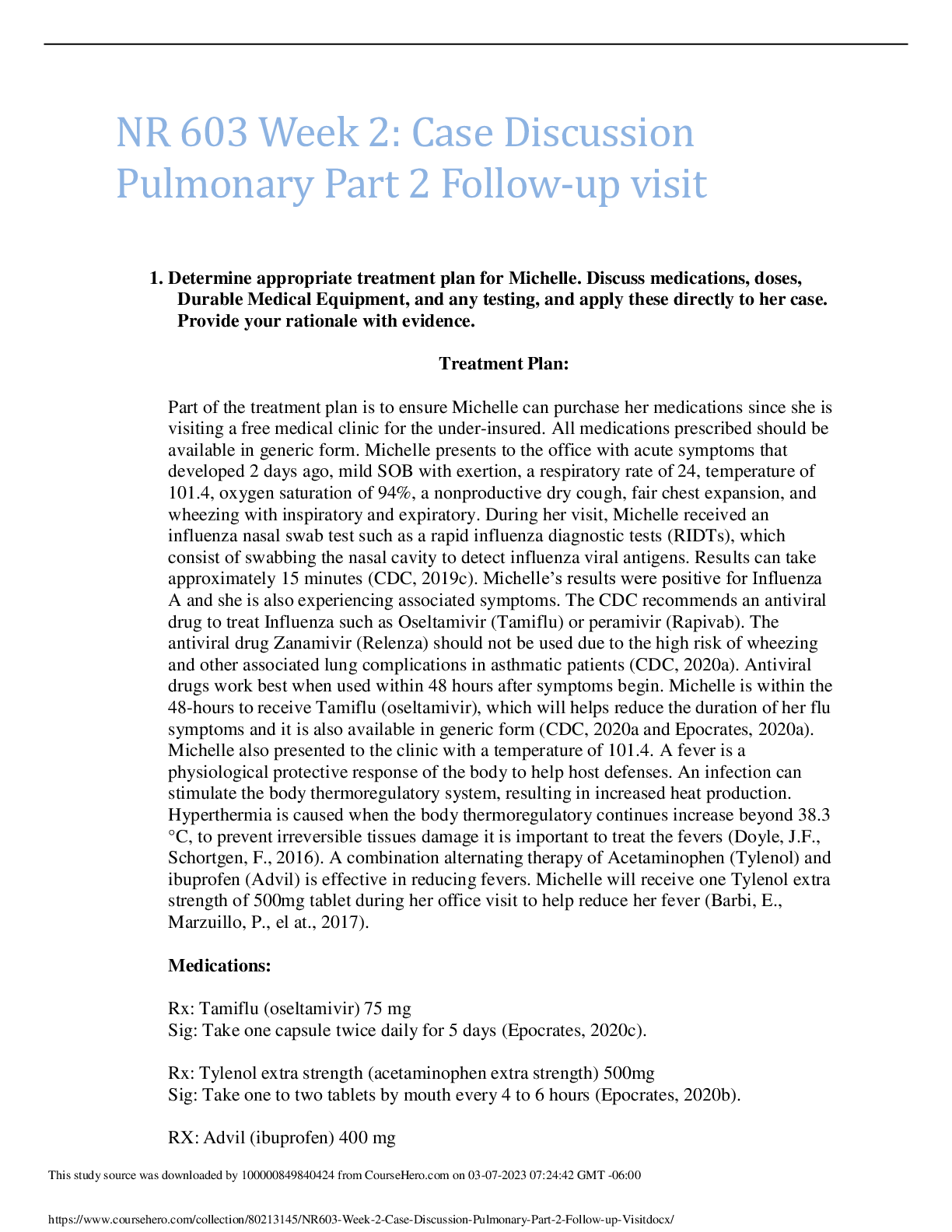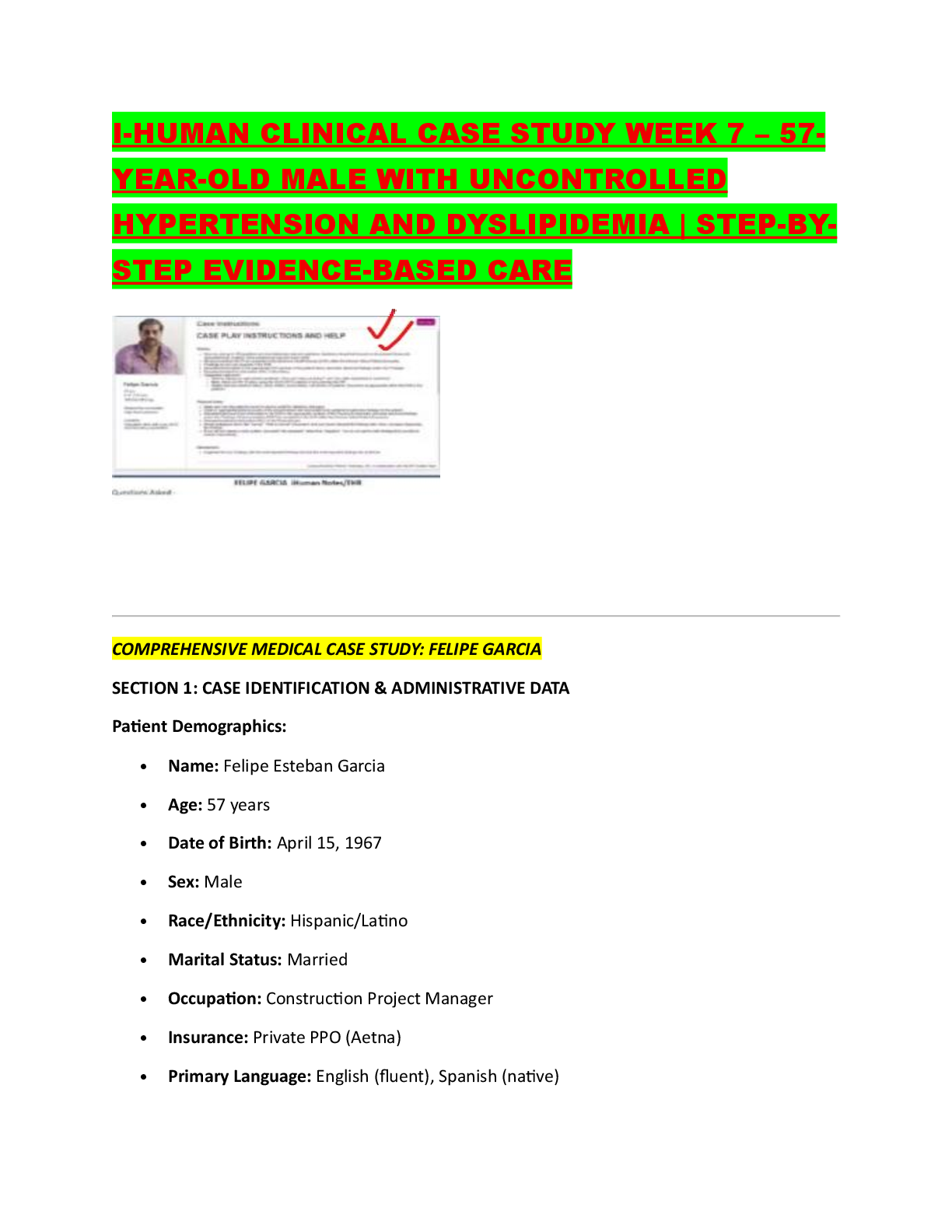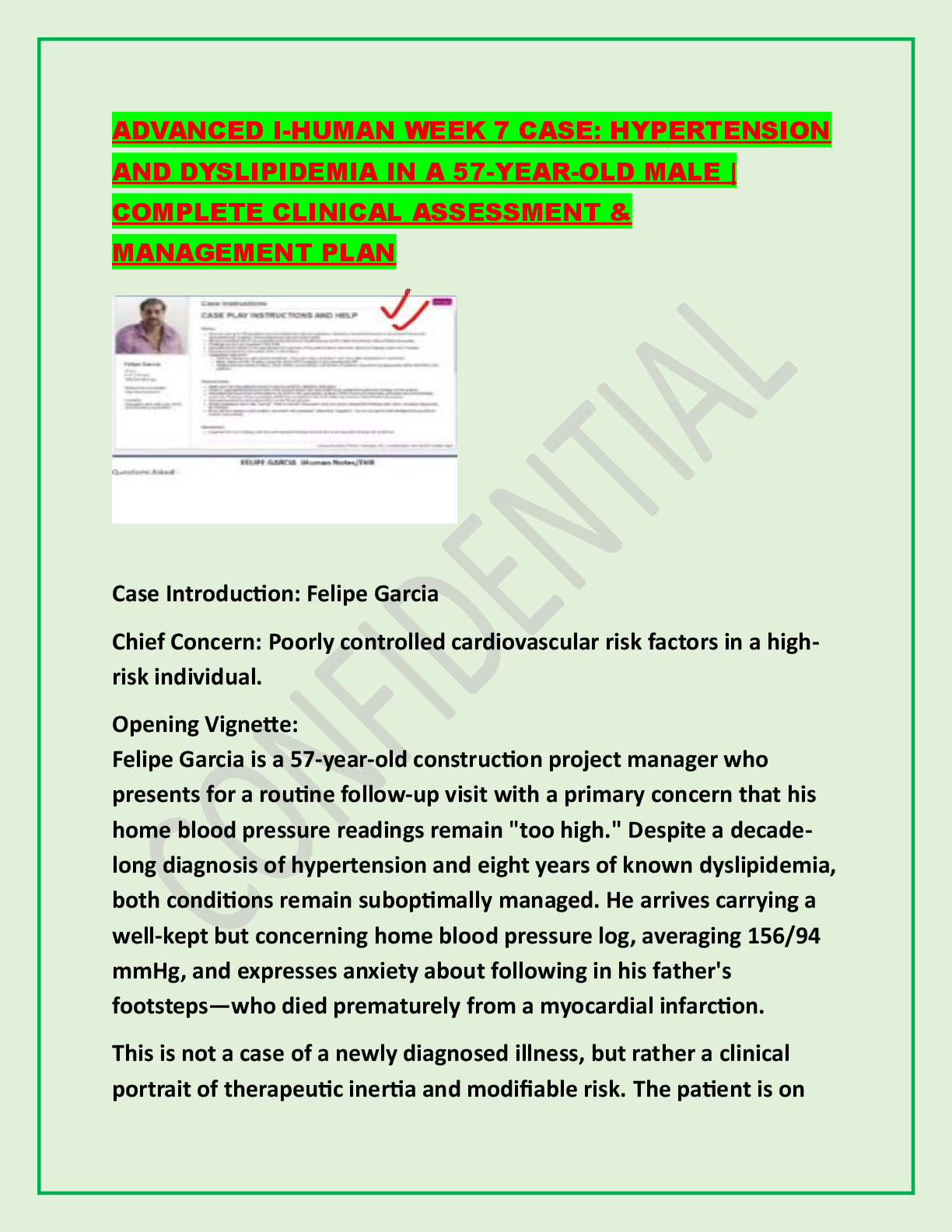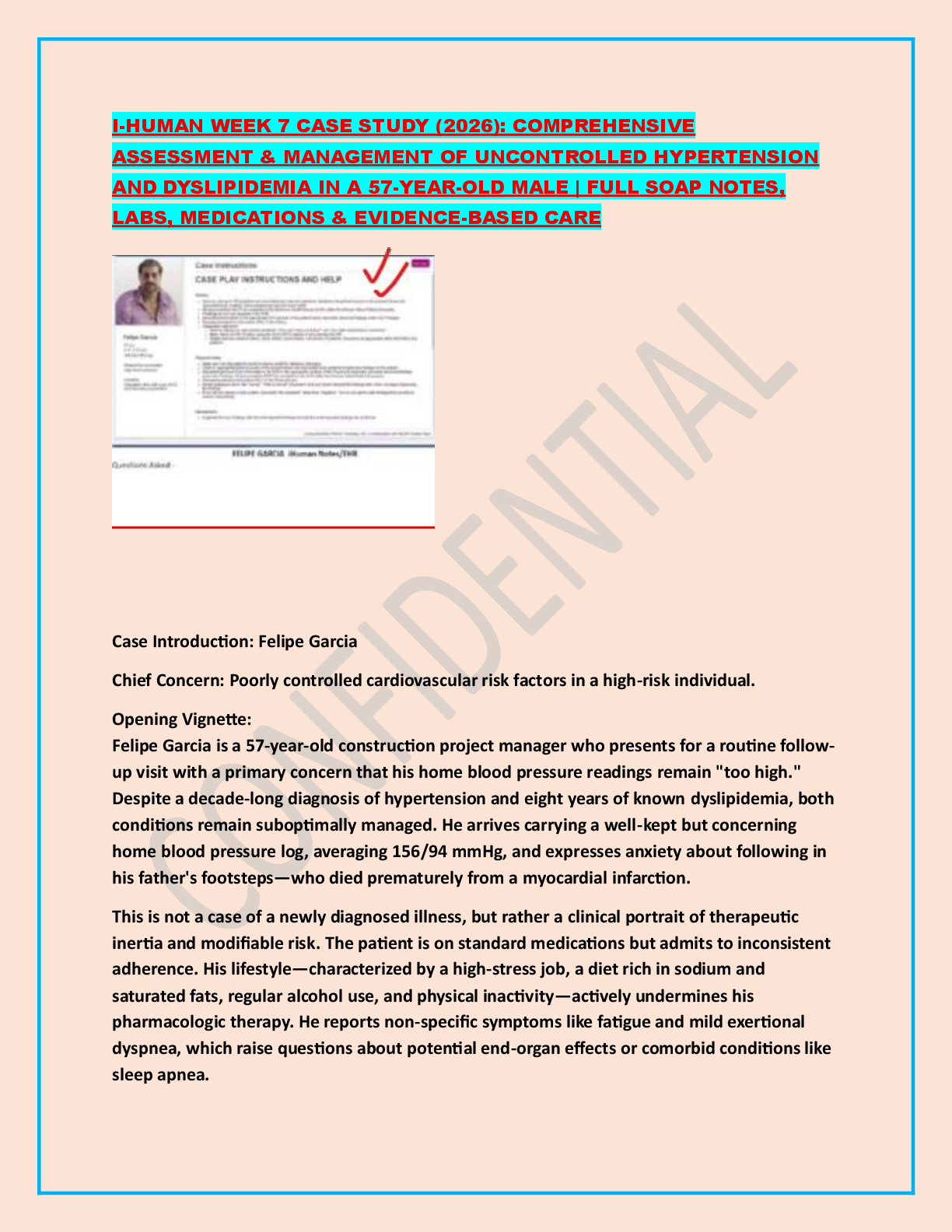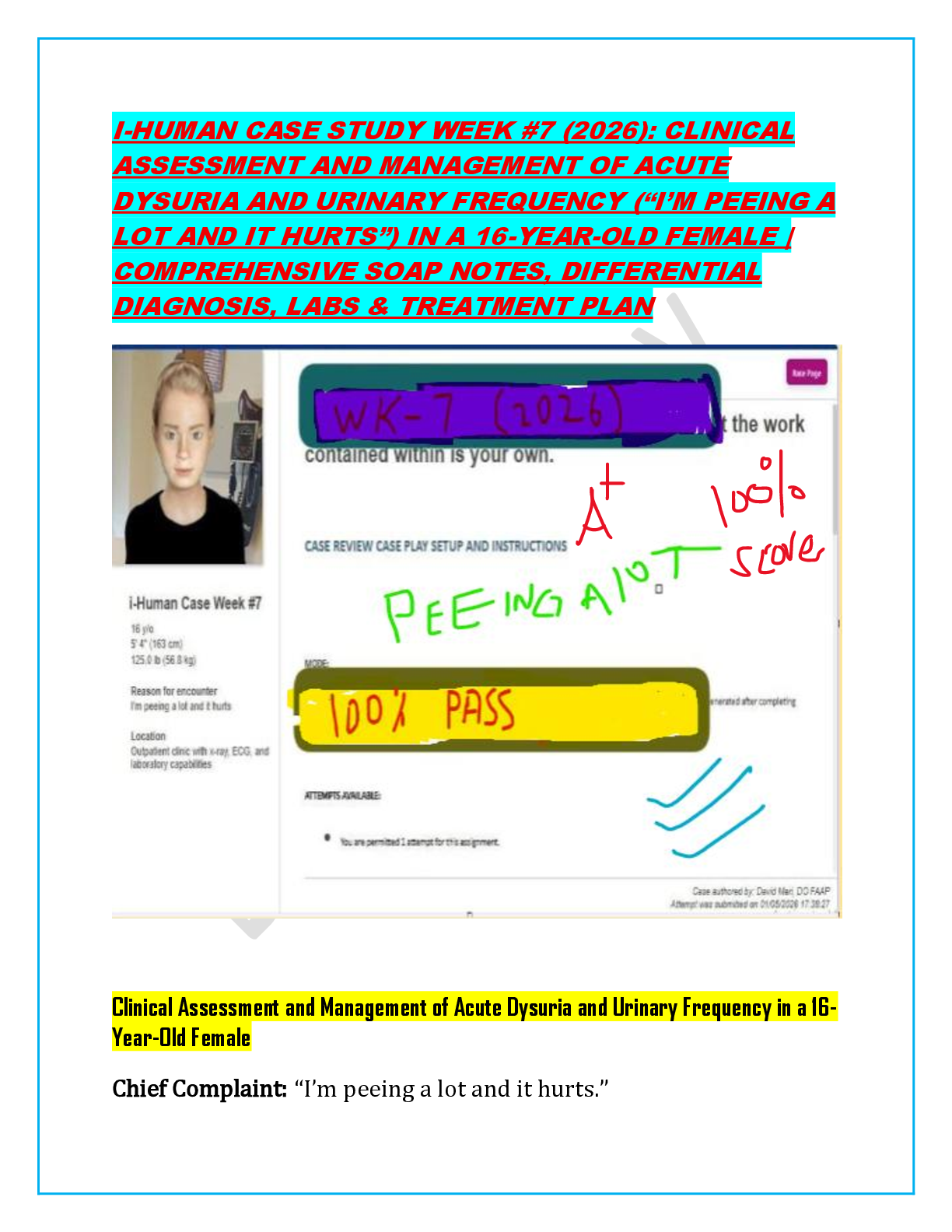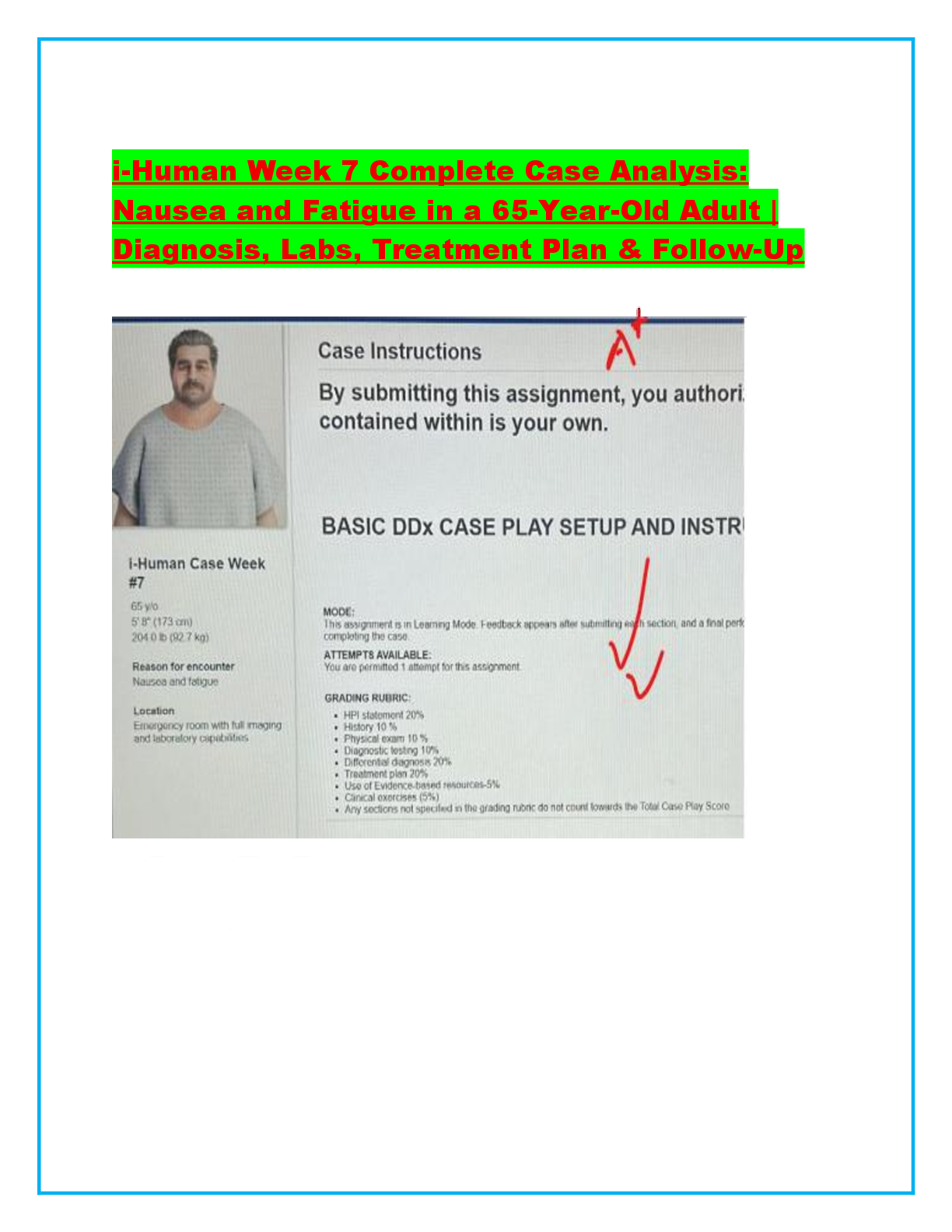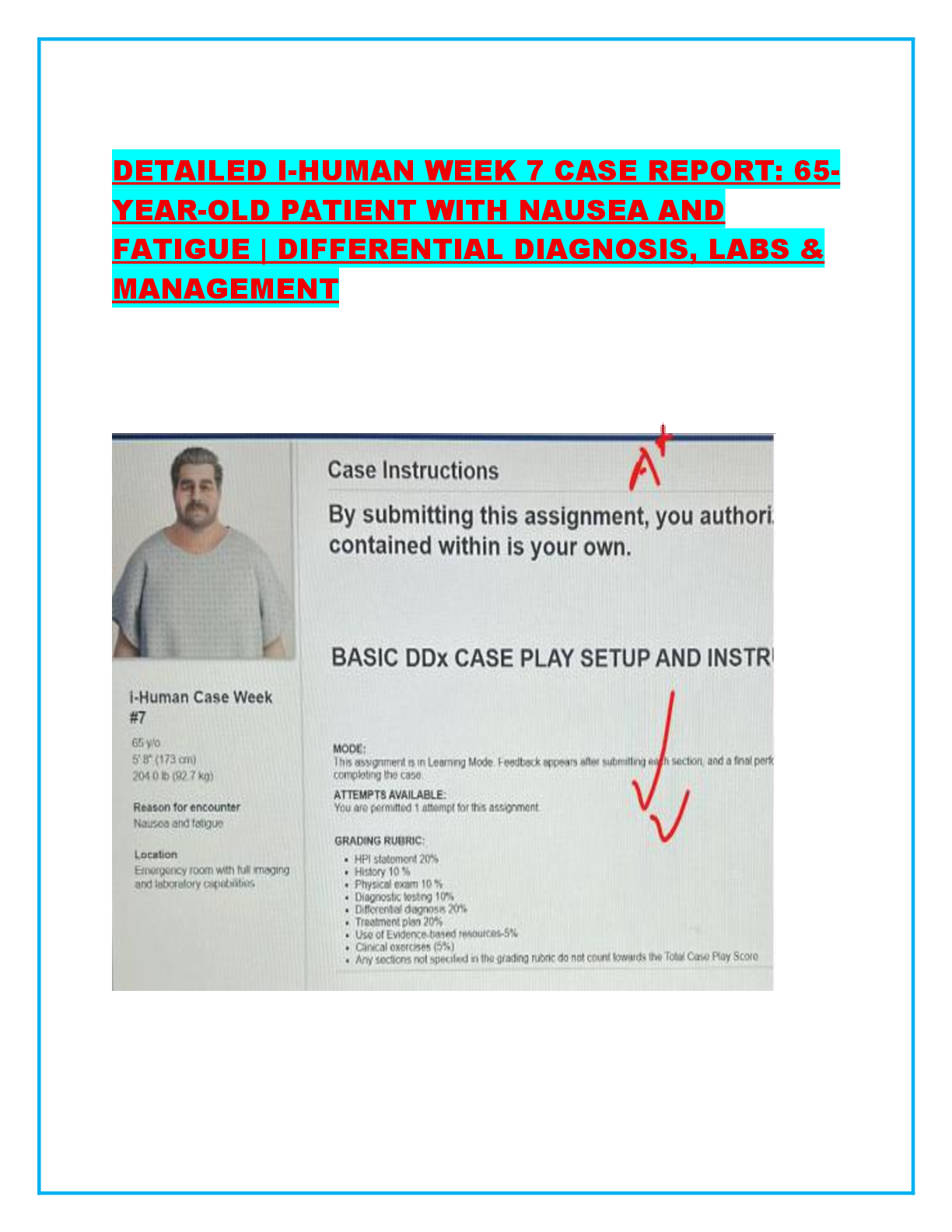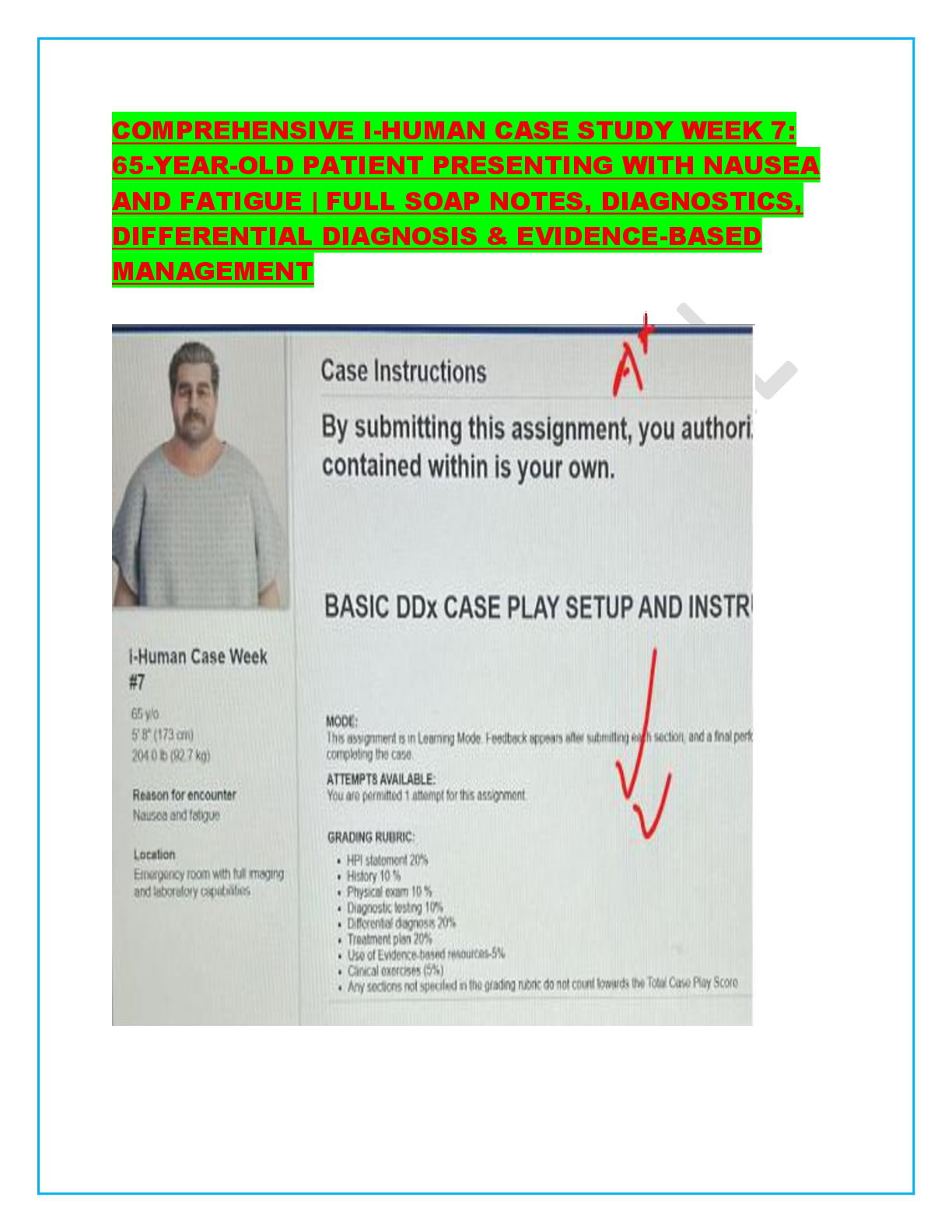Health Care > CASE STUDY > Mental Health Case: Sandra Littlefield (All)
Mental Health Case: Sandra Littlefield
Document Content and Description Below
Documentation Assignments 1. Document your findings related to the focused assessment of Ms. Littlefield’s coping strategies. Include her responses to your assessment. Ms. Littlefield resorted to ... anger and saying mean things. She did not have any healthy coping strategies developed. She had a history of self harm and attempted suicide. 2. Document all patient teaching regarding coping strategies and cognitive restructuring techniques provided Ms. Littlefield. Include her response to the teaching. Ms. Littlefield was not eager to learn other coping strategies and was continuously focused on medication. She was not receptive to breathing or relaxation techniques. I offered education regarding other methods such as support groups, heat or cold packs, and exercises. She was receptive to going to the library with me to check out a book and understood that saying mean things and being angry was unacceptable. She was also receptive to learning some exercises to strengthen her back. 3. Referring to your feedback log, document all nursing care provided and Ms. Littlefield’s response to this care. 0:06 You introduced yourself. 0:31 You washed your hands. 0:37 You identified the patient. 0:52 You asked if the patient had any known allergies. 1:00 You asked the patient: Can you tell me a little bit more about what's going on with you today? It was appropriate to ask the patient what was going on with her to get an understanding of this. 1:20 The patient said: I am in so much pain. You are a nurse. Don't you know how to tell when someone is hurting?\nYou answered: Why don't you try some deep breathing exercises to calm down? \nYou used the nontherapeutic technique of giving advice. 1:23 You asked the patient: Over the past year, when did you feel your best? It was appropriate to ask the patient about when she felt her best. 1:42 The patient said: There's no reason for me to be here anymore. No one cares about me at all.\nYou answered: Are you saying you feel hopeless? \nYou used the therapeutic technique of translating to feelings. 1:42 You asked the patient: Do you have any pain? 1:57 The patient said: I'm finished. I'm done with you and your worthless medicine. Guard, take me back now!\nYou answered: What you really mean is that you are mad I did not give you more pain medicine. \nYou used the nontherapeutic technique of interpreting. 2:00 You asked the patient: How would you rate your pain, on a scale of 0 to 10? The patient said: It changes but is always high. Now it is 8 to 9! From vSim for Nursing | Mental Health. ©Wolters Kluwer. This study source was downloaded by 100000852290574 from CourseHero.com on 02-01-2023 05:58:05 GMT -06:00 https://www.coursehero.com/file/58589106/VSIM-Sandra-Littlefielddocx/ 2:12 You asked the patient: On a scale of 0 to 10, how would you rate your level of distress? The patient said: I don't know. 10? 2:22 You asked the patient: Where is your pain located? 2:43 The patient said: You are trying to kill me with the pain. Just let me die; I can't live like this!\nYou answered: It seems like you are very frustrated. \nYou used the therapeutic technique of making observations. 2:44 You asked the patient: What other pain management strategies have you used other than medications? The patient said: No. Let's stick with the meds. It was correct to ask if the patient was using any pain management strategies other than medication. 2:54 You asked the patient: How many meals do you eat each day? The patient said: I usually eat three meals a day. 2:59 You asked the patient: Have you had any changes in your appetite over the past month? The patient said: My appetite has been about the same. 3:07 You asked the patient: Have you lost or gained weight over the past month? The patient said: No, I am about the same weight. 3:12 You asked the patient: Tell me about any changes you have had in your sleep over the past few weeks? The patient said: It isn't easy to sleep in this place. 3:21 You asked the patient: Do you have any trouble falling asleep? The patient said: No, not usually. 3:26 You asked the patient: Do you nap during the day? If so, how often and for how long? The patient said: I sleep a lot because there isn't much to do here. 3:34 You asked the patient: Do you have nightmares or vivid dreams on a regular basis? The patient said: No, not usually. 3:40 You asked the patient: Approximately how many hours of sleep do you get each night? The patient said: I sleep about 7 hours a night. 3:47 You asked the patient: Do you have energy to do the normal activities necessary to get through the day? 4:10 The patient said: You think I'm a horrible person because I'm in jail. You are no better than I am.\nYou answered: Are you feeling that no one understands how you feel? \nYou used the therapeutic technique of translating to feelings. 4:11 You asked the patient: Do you have energy to do the activities that give you enjoyment? The patient said: I have plenty of energy when I am not in pain. 4:20 You asked the patient: I would like to ask you a series of questions about how you are feeling to help me better understand how together we can start to plan your care. These are questions I ask all of the patients I see. May I ask you these questions? [Show More]
Last updated: 2 years ago
Preview 1 out of 6 pages
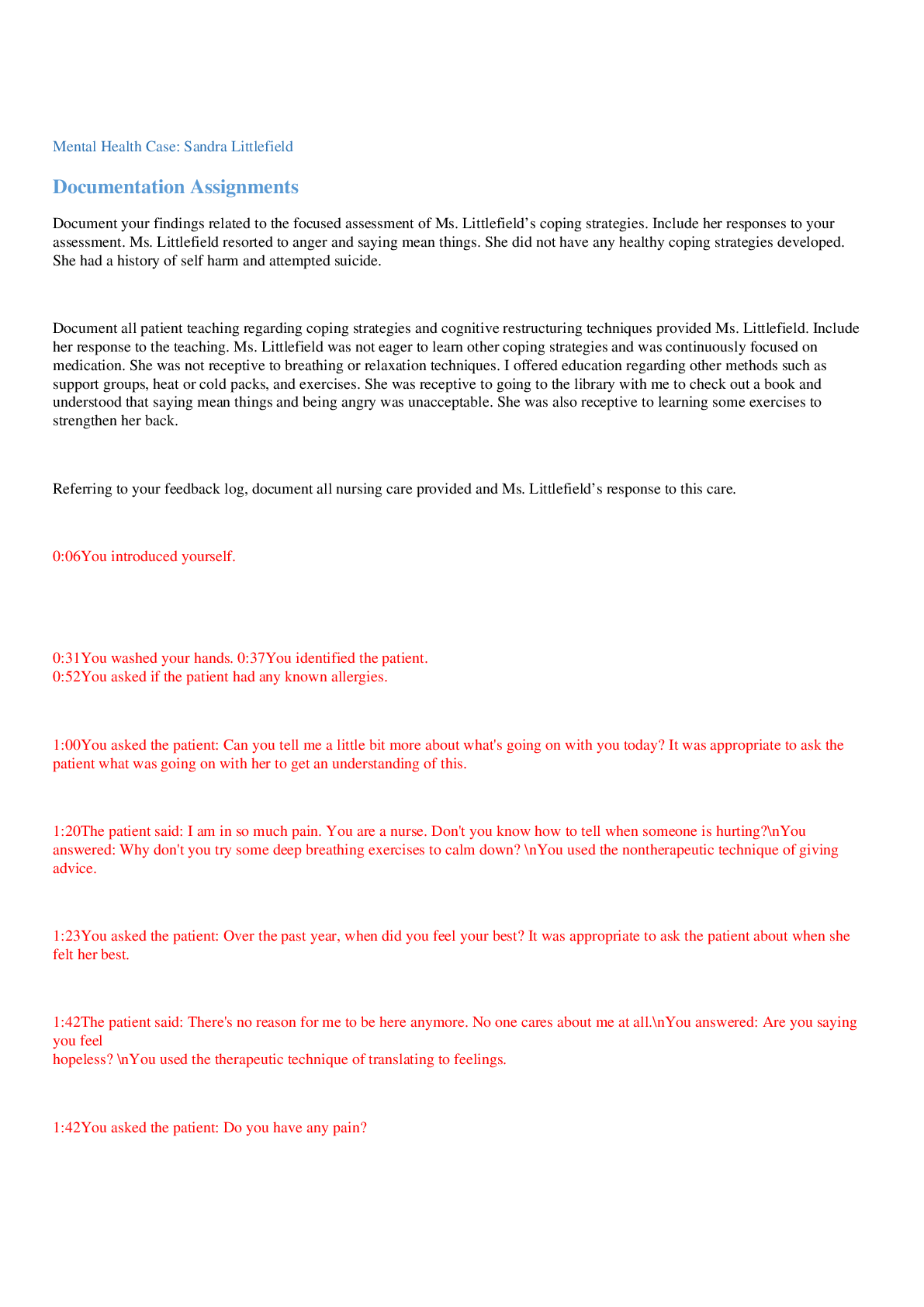
Buy this document to get the full access instantly
Instant Download Access after purchase
Buy NowInstant download
We Accept:

Reviews( 0 )
$7.00
Can't find what you want? Try our AI powered Search
Document information
Connected school, study & course
About the document
Uploaded On
Feb 01, 2023
Number of pages
6
Written in
All
Additional information
This document has been written for:
Uploaded
Feb 01, 2023
Downloads
0
Views
75


 (1).png)





